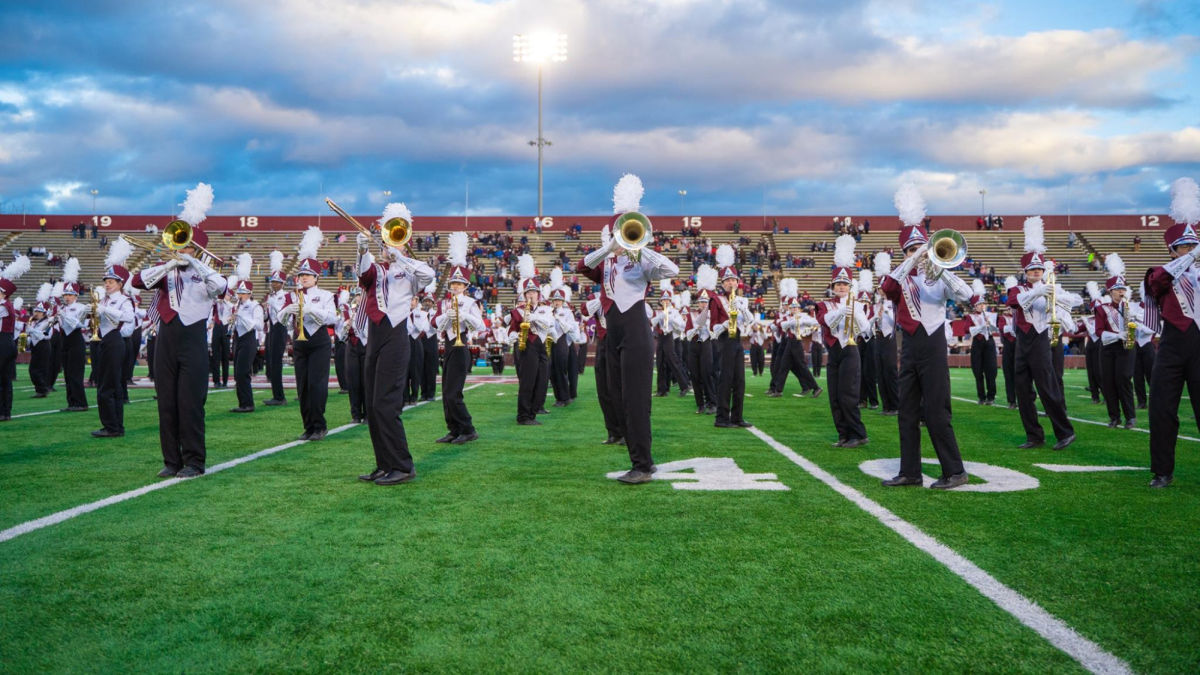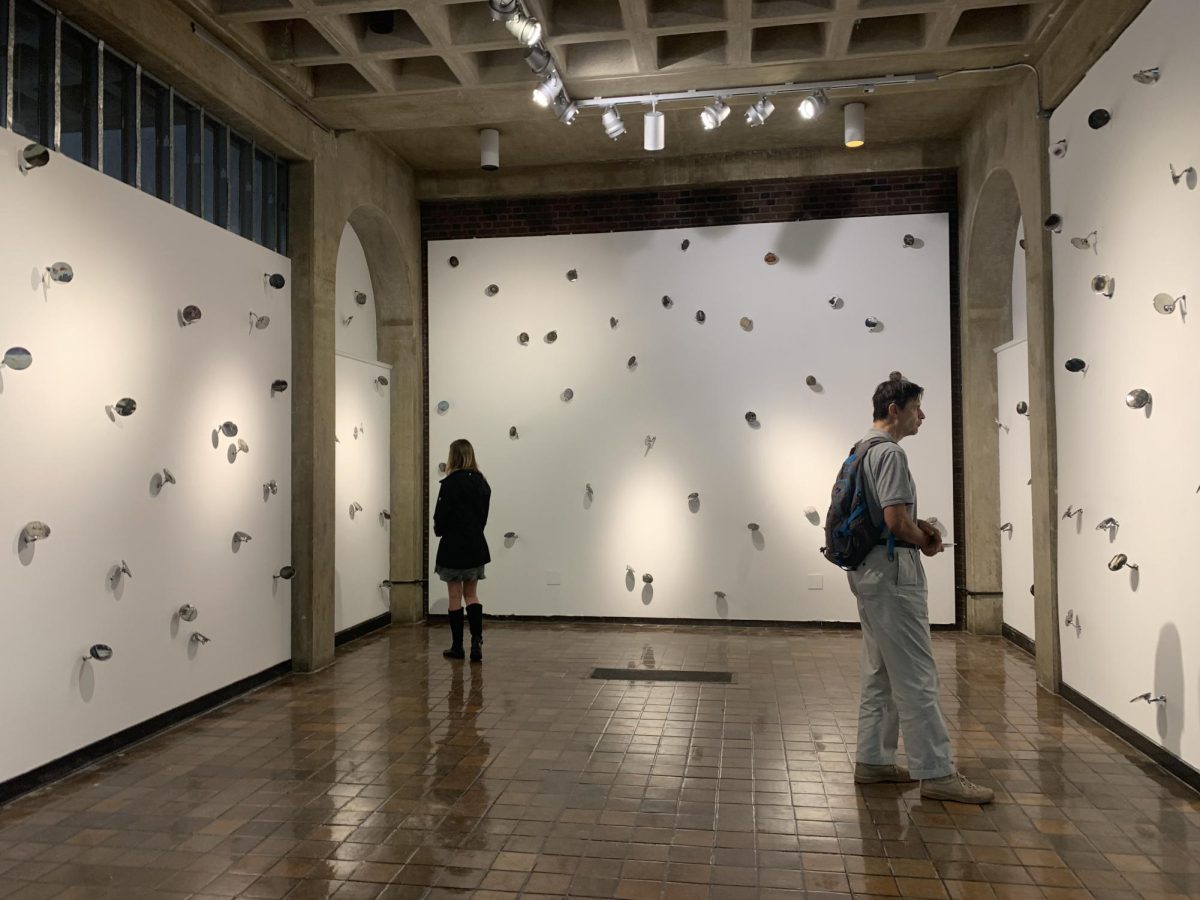CASA Dominicana infused a little Caribbean heat into a cold Massachusetts night when they celebrated Dominican Independence Day on Saturday ,Feb. 27 in the Fine Arts Center lobby.
University of Massachusetts cultural RSO CASA Dominicana celebrated 166 years of Dominican Independence with a semi-formal dinner which featured presentations by UMass students and professors, a spoken word performance by Dominican slam poet Oveous Maximus, and music by the traditional Dominican ensemble group KumbaCarey.
This year’s Independence Day event focused on Afro-Dominican heritage within Dominican culture. It highlighted the need for Dominicans to embrace their African roots and overcome the stereotypes which separate them from their neighbor, Haiti.
In her speech at the beginning of the night, CASA host Gisel Saillant acknowledged the importance of improving relations between the countries, particularly in light of the earthquake which ripped across Haiti on January 12.
“We haven’t always had the best relationship with Haiti,” Saillant began. “We haven’t embraced our Afro-Dominican culture. Tonight we want to celebrate the strength of our African heritage, our history as Dominicans.”
The evening began with dinner and dance performances from the Ritmo en Mi, a hip-hop dance group from Peck Middle School in Holyoke, and CASA Dominicana. The theme of Afro-Dominican heritage was explored in a series of skits performed by UMass students throughout the evening. These skits demonstrated the impact of race on relationships, identity, and standards of beauty in the Dominican Republic.
Guest Speaker Augustin Lao-Montes gave a presentation on the history of oppression and independence in the Dominican Republic.
The Dominican Republic achieved its official independence on Feb. 27, 1844, after nearly 400 years of foreign occupation. The island of Hispaniola became a Spanish territory with the arrival of Christopher Columbus in 1492, and was later ceded to France in 1795. The Dominican Republic first declared independence from France in 1821, but was invaded by Haitian forces just nine weeks later. The Haitian occupation lasted for 22 years.
Lao-Montes also spoke on the historical significance of race in the formation of a Dominican identity, and how race has had an impact on the country’s relationship with Haiti.
“Our culture tends to deny that most citizens are African descended,” said Lao-Montes, “there is a stereotype on the island that blacks are the Haitians – that Haitians are the real blacks.”
Lao-Montes criticized this racial stratification and the perceived conformity to European standards to which Dominicans adhere in the Dominican Republic.
“Everyone is some kind of chocolate or café con leche in the Dominican Republic,” Lao-Montes said to the laughter of the audience. “95 percent are of African descent, the highest in the Caribbean. Overcoming these racial stereotypes is especially important when there is such a tragedy in Haiti and we need to strengthen ties between the two countries.”
CASA Dominicana has already begun work supporting Haiti in their time of need, working alongside UMass’ Haitian American Student Alliance to raise money to send supplies to earthquake victims in Haiti.
According to Saillant, the hostility between the nations is hard to imagine, especially given the close relationship between Haitian and Dominican students on the UMass campus.
“Relations between Dominican and Haitian students are so different at UMass than they are on the island,” said Saillant, “Here we’re so close. We work together, we support each other. We plan a HASA/CASA event together in the spring. If you look around, you’ll see members of the Haitian American Student Alliance here tonight, to support our Independence event.”
Her opinion was supported by co-host and fellow CASA member Modesto Montero, who said the earthquake will likely have an impact on Haitian-Dominican relations.
“I think the earthquake already has had an effect,” said Montero, “but we have yet to see whether that effect will be positive or negative. We’re already seeing the support from the Dominican government in terms of short-term aid to Haiti. It’s in the long-term that we’ll see whether the tragedy has any real effect on relations between the countries.”
One of the highlights of the night was a spoken word performance by Dominican slam poet Oveous Maximus. Maximus is an internationally recognized spoken word artist who dedicates his performances to the memory of his brother, Carlos “Zinc Blue” Salceda, who committed suicide in 2003. He has been featured on Showtime at the Apollo in New York and on the HBO series “Def Poets.”
Maximus was late to the CASA event but, according to Saillant, performed for UMass free of charge.
“Getting Maximus to come was easy. He really wanted to come to UMass,” said Saillant of Maximus. “We’re hoping he’ll return for the HASA/CASA event in the spring.”
The evening ended in dancing, with music provided by the traditional ensemble group KumbaCarey.
Rachel Dougherty can be reached at [email protected].






